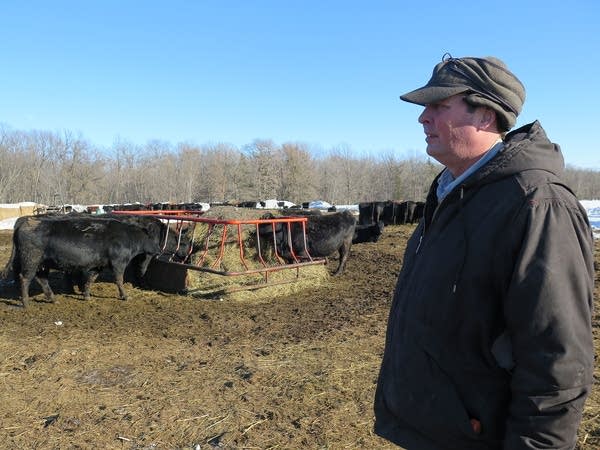DNR reviews impacts of farmer’s plan to irrigate cropland in Pineland Sands

Tim Nolte looks out over his herd of cattle on his family's farm near Sebeka, Minn., in February. His request to irrigate about 300 acres to grow hay and other crops, and graze his cattle has gotten caught up in a larger debate over the conversion of forests to potato fields in Minnesota’s Pineland Sands region.
Kirsti Marohn | MPR News
Go Deeper.
Create an account or log in to save stories.
Like this?
Thanks for liking this story! We have added it to a list of your favorite stories.


